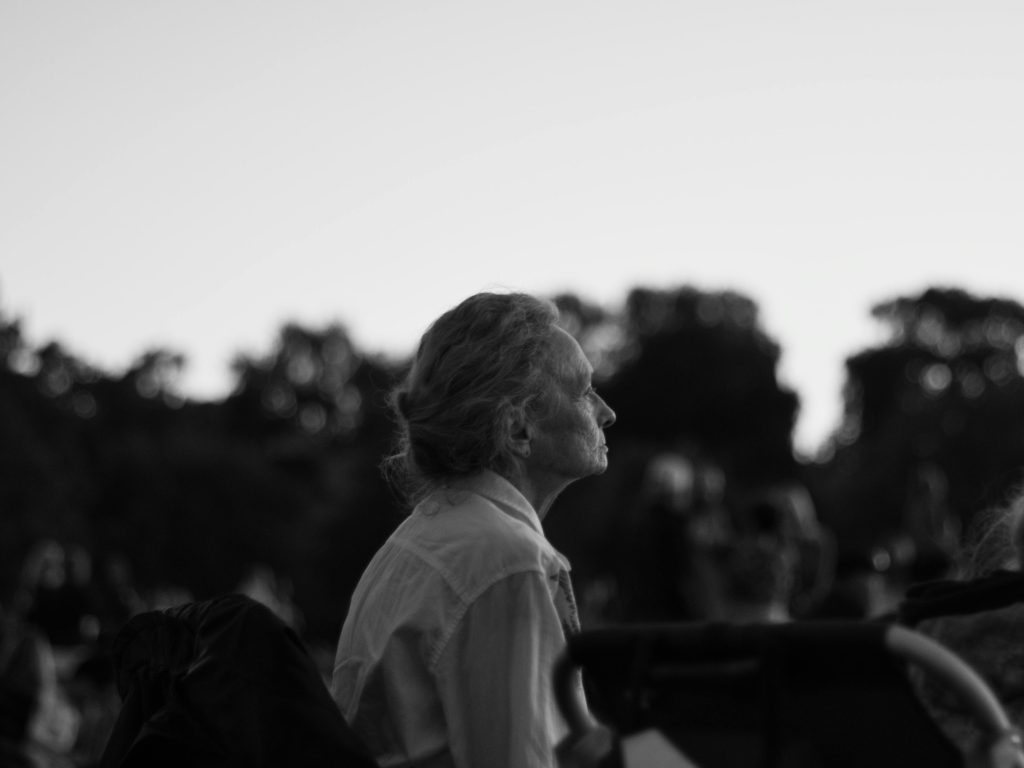Elderly patients, like all individuals seeking medical care, are entitled to a fundamental and universally recognized standard of care within the medical community. This standard is rooted in the principles of compassion, dignity, and respect for the inherent worth and rights of every patient. Regardless of age, background, or health condition, the expectation of quality healthcare remains consistent.
Within the realm of healthcare, nursing home residents represent a particularly vulnerable demographic. Often in their later stages of life, these individuals may face a range of physical, emotional, and cognitive challenges that necessitate specialized care. The commitment to upholding their well-being extends beyond the mere provision of medical services; it encompasses a comprehensive approach that emphasizes attentiveness, thoroughness, and appropriateness in every aspect of care.
The foundation of this commitment lies in recognizing that elderly nursing home residents, just like any other patient, deserve to receive care that is both responsive to their specific needs and respectful of their individual rights. This encompasses not only medical assessments and treatments but also the provision of emotional support, maintenance of their personal dignity, and protection from harm or neglect. Nursing home staff, healthcare practitioners, and medical professionals must adhere to these principles to ensure the safety, health, and overall quality of life of their elderly residents.
In essence, the expectation is that elderly nursing home residents are to be treated with the same diligence, integrity, and empathy as any other patient in the medical arena. This commitment to equality and quality care is not only a moral imperative but also a legal one, reinforced by regulations and standards established to protect the rights and well-being of elderly individuals residing in nursing homes. Thus, understanding and addressing instances of elder neglect or substandard care is of utmost importance to safeguard the health and dignity of this vulnerable population.
Free Case Evaluation
Understanding Elder Neglect
Whether the elderly patient is in a nursing home, hospital or another medical center, it is the responsibility of healthcare practitioners to perform the following.
- An examination when needed
- Appropriate tests for the purpose of diagnosis
- Referrals to a specialist when necessary for further evaluation
When a doctor fails to diagnose a patient properly and subsequently doesn’t refer him or her to see the appropriate specialist, then this lack of action can be construed as neglectful or as medical malpractice. The consequences of this type of oversight can be very serious and even fatal. A missed diagnosis, a wrong diagnosis or a delayed diagnosis can result, preventing proper treatment and delaying or interfering with the recovery process.
If you have a loved one who you believe has received this type of substandard care from their medical professional, you may need to intervene to prevent further suffering and health problems. If your loved one is living in a nursing home, you might need to consider moving him or her to a new facility.
You may also have to undertake the following tasks:
- Notify appropriate agencies for the aging.
- Seek compensation for any additional medical bills, loss of quality of life or other damages incurred by the patient.
- Consult an attorney who specializes in Olympia personal injury law and elder abuse or medical malpractice cases for help and guidance.
Common Complications Associated with a Failure to Refer to a Specialist
When a doctor fails to refer a nursing home resident to a specialist for further evaluation, testing and diagnosis, complications and serious health effects can occur. Some common outcomes of this type of medical malpractice can include the following scenarios.
- The patient’s condition can deteriorate in the interim period when s/he should have been seen by a specialist but wasn’t.
- Additional suffering and prolonged discomfort can accompany a failure to diagnose the patient’s condition properly.
- The doctor may misdiagnose and fail to treat an illness or injury.
- Additional recovery time, medical bills and loss of quality of life can occur because of delayed treatment.
Case Results
Confidential
Nursing home vulnerable adult medication overdose wrongful death in Pierce County.
$5,000,000
Negligence, neglect, and abandonment litigation against the State of Washington, DSHS, and Brighton Enterprises, Inc by Guardian for Vulnerable Adult
$4,755,555
Neglect and abandonment litigation against the State of Washington, DSHS, and Brighton Enterprises Inc by Guardian for Vulnerable Adult
Our Approach to Elder Neglect
Proving Elder Neglect
Proving elder neglect, especially in cases where a doctor’s failure to refer a patient to a specialist is alleged, can indeed present challenges. To build a viable case, our approach involves meticulous attention to detail and a comprehensive assessment of the circumstances. Here are the key elements we consider when pursuing a case of elder neglect:
- Established Medical Relationship: We work to demonstrate that a doctor-patient relationship existed between the elderly individual and the medical professional in question. This establishes the duty of care owed to the patient regarding their specific symptoms and medical needs.
- Comparison with Standard Care: Our legal team evaluates whether a similarly credentialed doctor would have provided better care under the same circumstances. This involves a thorough review of medical protocols and standards of care to determine if the neglect in referring to a specialist deviated from accepted medical practice.
- Failure to Follow Diagnosis Protocol: We examine whether the doctor in question failed to adhere to standard diagnosis protocols, which may include referring the patient to a specialist when necessary. Deviations from these protocols can be a crucial element in proving neglect.
- Documented Harm: To substantiate the case, we collect and present evidence demonstrating that the patient suffered documented harm as a direct result of the delayed, wrong, or missed diagnosis stemming from the failure to refer. This may involve medical records, expert testimony, and other relevant documentation.
By thoroughly investigating and meticulously preparing these elements, we aim to build a strong case that demonstrates elder neglect and seeks justice for your loved one. Our experienced attorneys are dedicated to advocating for the rights and well-being of elderly individuals who have suffered neglect within nursing homes, hospitals, or other healthcare facilities. We are here to guide you through the legal process and ensure that your family receives the care and justice you deserve.
If you suspect elder neglect, contact Ron Meyers & Associates PLLC today at 360-459-5600 for a free consultation to discuss your case with an attorney who specializes in elder abuse and neglect cases in the state of Washington.
How Ron Meyers & Associates Can Help with Elder Neglect Cases
Ron Meyers & Associates PLLC Specializes in Personal Injury Law
Ron Meyers & Associates PLLC is firm of experts in personal injury law and elder abuse cases in the state of Washington. Our team is here to serve you while you care for your senior loved one. We understand your challenges and are committed to ensuring that your family receives the guidance and care you deserve. Call us today at 360-459-5600 to set up a free consultation to discuss your case with an attorney.
Frequently Asked Questions About Elder Neglect Cases
Elder neglect refers to the failure to provide necessary care, attention, or protection to elderly individuals who are in a caregiver’s custody or care. It encompasses a range of actions or omissions that can lead to physical, emotional, or financial harm. Legally, it varies by jurisdiction, but generally, it is defined as a violation of an elder’s rights to receive proper care and attention, often resulting in legal consequences for the responsible party.
Common signs of elder neglect can include unexplained injuries, malnourishment, poor hygiene, untreated medical conditions, sudden changes in behavior, social isolation, financial exploitation, or lack of essential medical aids or medications. Recognizing these signs is crucial in identifying potential cases of elder neglect.
Responsibility for elder neglect can fall on various parties, including caregivers, nursing home staff, medical professionals, and even family members who have assumed the role of caretaker. Liability depends on the specific circumstances of the neglect and who had a duty of care towards the elderly individual.
Proving elder neglect in a legal case typically involves gathering evidence that demonstrates the following:
- The existence of a doctor-patient relationship between the elder and the alleged negligent party.
- A breach of the standard of care owed to the elder.
- Causation: Showing that the neglect directly resulted in harm or injury to the elder.
- Damages: Documenting the extent of harm, including medical bills, pain and suffering, or other losses.
An attorney specializing in elder abuse or neglect cases can help gather the necessary evidence.
If you suspect elder neglect, your first priority should be the safety and well-being of the elderly individual. If you believe they are in immediate danger, call 911. If the danger isn’t immediate but you suspect abuse or neglect, report it to the appropriate authorities, such as Adult Protective Services or local law enforcement. Additionally, consult with an attorney experienced in elder abuse or neglect cases to explore your legal options.
An attorney with expertise in elder neglect cases can provide essential assistance by:
- Evaluating the validity of your case and whether neglect or abuse has occurred.
- Investigating and gathering evidence to support your claims.
- Advising you on the legal options available, such as pursuing compensation or damages through a lawsuit.
- Representing your interests in negotiations or litigation, ensuring your loved one’s rights are protected and seeking justice on their behalf.
The statute of limitations for filing an elder neglect lawsuit can vary depending on your jurisdiction and the specifics of your case. In Washington, for example, the statute of limitations for personal injury cases is typically three years from the date of injury. However, it’s crucial to consult with an attorney promptly to determine the exact time limits applicable to your case, as exceptions may exist.















